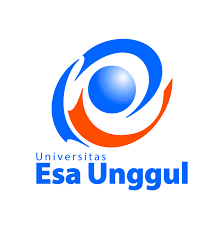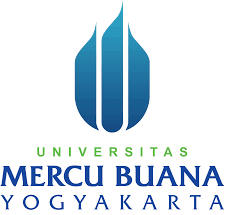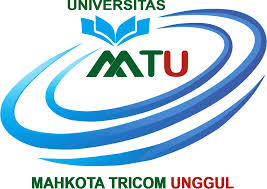The Effect of Work Environment, Work Conflict, and Workload Towards Occupational Stress among Private Universities Lecturers in Surakarta City
DOI:
https://doi.org/10.55927/eajmr.v2i3.3466Keywords:
Work Environment, Work Conflict, Workload, Lecturer Occupational StressAbstract
This study aims to determine the effect of environment, conflict, and workload towards Occupational Stress among private Universities Lecturers in Surakarta City. Sampling was conducted with convenience method. There were 100 lecturers from private universities in Surakarta participated in this study. Data was analyzed using the Smart PLS3 application. The study results show that work environment influenced the occupational stress of lecturers. The work environment influenced the lecturers’ workload. Work conflict affected the workload. Work conflict affected occupational stress of lecturers. Workload affected occupational stress of lecturers. Conclusion In overall, hypothesis test results show that all determined models contributed to a significant effect. The highest variable for occupational stress during the Covid 19 pandemic was the work environment. Based on this result, universities should improve the facilities to support the safety and convenience of the work environment. The work conflict variable had a higher influence value on lecturer workload therefore the role of leader in tertiary management was highly important in anticipating prolonged conflicts in the work environment to prevent interference on the quality of performance and quality of universities.
References
Afrianty, T. W., Artatanaya, I. G. L. S., & Burgess, J. (2022). Working from home effectiveness during Covid-19: Evidence from university staff in Indonesia. Asia Pacific Management Review, 27(1), 50–57. https://doi.org/10.1016/j.apmrv.2021.05.002
Al-Bana, N. P., Zaidan, A., & Al-Khairi, P. A. (2021). Analisis Pengaruh Lingkungan Kerja Fisik Terhadap Beban Kerja Mental Pekerja UMKM Pembuatan Kerupuk XYZ. Seminar Dan Konferensi Nasional IDEC, 2018, 2–7.
Aliftitah, S., & Oktavianisya, N. (2021). Stres Dan Kecemasan Pada Dosen Yang Melaksanakan Kuliah Daring Pada Masa Pandemi Covid-19. Jurnal Kesehatan Mesencephalon, 7(2). https://doi.org/10.36053/mesencephalon.v7i2.299
Ando, A. A., Umar, A. F., & Agustina. (2017). Gambaran Faktor Faktor Stres Kerja Caregiver dalam Melayani Pasien Gangguan Jiwa di Yayasan Galuh Kota Bekasi 2017. Jurnal Persada Husada Indonesia Vol, 4(14), 1–16.
Bao, Y., Zhu, F., Hu, Y., & Cui, N. (2016). The Research of Interpersonal Conflict and Solution Strategies. Psychology, 07(04), 541–545. https://doi.org/10.4236/psych.2016.74055
Cahyaningtyas, I. D., & Santosa, A. D. (2021). The Impact of Competency, Workload, and Work Environment to Work Stress and The Employee Performance of Bank BJB S. Parman. INOBIS: Jurnal Inovasi Bisnis Dan Manajemen Indonesia, 4(3), 389–396. https://doi.org/10.31842/jurnalinobis.v4i3.191
Cooper. (2013). From Stress to Wellbeing Volume 1: The Theory and Research on Occupational Stress and Wellbeing. Springer.
DeVito, J. A. (2014). Essentials of Human Communication, 8th Edition. Pearson.
Dewi, P., Efendi, I., & Afriani, M. (2022). Pengaruh Konflik Interpersonal Dan Beban Kerja Terhadap Stres Kerja Perawat Di Ruang Rawat Inap RSUD Gunung Tua Kabupaten Padang Lawas Utara Tahun 2021. Journal of Healthcare Technology and Medicine, 8(1), 146–154. http://www.jurnal.uui.ac.id/index.php/JHTM/article/view/1950
Firman, Ekawarna, Anra, Y., & Setiawan, B. (2022). Influence of Interpersonal Conflict and Social Norms towards Organizational Conflict and Lecturer Occupational Stress. International Journal of Instruction, 15(4), 645–666. https://doi.org/10.29333/iji.2022.15435a
Ghozali. (2016). Aplikasi Analisis Multivariete Dengan Program IBM SPSS. Badan Penerbit Universitas Diponegoro.No Title.
Gilang Syahril Akbar. (2021). Quality of Higher Education Graduates in terms of Lecturer Performance and Academic Services. Nizamul ‘Ilmi: Jurnal Manajemen Pendidikan Islam (JMPI), 6(1), 31–48.
Goel, M., & Verma, J. P. (2021). Workplace stress and coping mechanism in a cohort of Indian service industry. Asia Pacific Management Review, 26(3), 113–119. https://doi.org/10.1016/j.apmrv.2020.10.001
Handayani, R. (2022). Employee Performance Analysis Based on Human Resources Management Practices in Private Hospital in Surakarta. Kinerja Karyawan Media Ekonomi Dan Manajemen, 37(1), 109–126. https://doi.org/10.24856/mem.v37i1.2428
Handoko, T. H. (2016). Manajemen. Yogyakarta : BPFE. BPFE.
Hanif, R. A. (2013). garuh Struktur Audit, Konflik Peran, dan Ketidakjelasan Peran Terhadap Kinerja Auditor. Jurnal Ekonomi. Jurnal Ekonomi, 21(3), 2–17.
Hariyati. (2011). Pengaruh Beban Kerja Terhadap Kelelahan Kerja Pada Pekerja Linting Manual Di PT. Djitoe Indonesia Tobacco Surakarta. Universitas Sebelas Maret Sur.
Husnalia, S., Hadi, S., Mufarohah, A., Manajemen, J., Kesuma, S., & Blitar, N. (2021). Pengaruh Lingkungan Kerja dan Stres Kerja terhadap Kinerja Guru pada Madrasah Aliyah Negeri 1 Blitar.
Knave, B., & Ennals, R. (2001). Working life across cultures: “work life 2000: Quality in work” and occupational health education in developing countries. International Journal of Occupational Safety and Ergonomics, 7(4), 435–448. https://doi.org/10.1080/10803548.2001.11076500
Kurniawati, N. I., Werdani, R. E., & Pinem, R. J. (2018). Analisis Pengaruh Work Family Conflict dan Beban Kerja Terhadap Stres Kerja Dalam Mempengaruhi Turnover Intention (Studi Pada Karyawan PT. Bank Negara Indonesia (Persero), Tbk Wilayah Semarang). Jurnal Administrasi Bisnis, 7(2), 95. https://doi.org/10.14710/jab.v7i2.22694
Mariadi. (2012). Teori Tentang Stres Kerja Di Perusahaan. Kencana Buku Ekonomi.
Marliani, G., Sugiarto, T., & Varent, G. (2020). Pengaruh Motivasi terhadap Kinerja Karyawan PT. PLN (Persero) Tamiang Layang. Jurnal Riset Inspirasi Manajemen Dan Kewirausahaan, 4(2), 104–114. https://doi.org/10.35130/jrimk.v4i2.125
Meilina, R., Ekonomi, F., Nusantara, U., Kediri, P., Kh, J., Dahlan, A., Kediri, N., & Timur, J. (2019). Dampak Perubahan Lingkungan Kerja Non Fisik Masa Pandemi Covid-19 bagi Karyawan Toserba Barokah Kota Kediri. Jurnal Penelitian Manajemen Terapan …, 5(1), 46–56. http://journal.stieken.ac.id/index.php/penataran/article/view/462
Musa, M. I., Ruma, Z., disusun oleh, Y., Wahyu Nabila, K., Beban, P., Dan, P., Pekerjaan, K., Stres, T., Guru, K., Di, H., Menengah, S., Kabupaten, P., Provinsi, B., Barat, K., Purwani, T., Firman, Ekawarna, Anra, Y., & Setiawan, B. (2022). Influence of Interpersonal Conflict and Social Norms towards Organizational Conflict and Lecturer Occupational Stress. International Journal of Instruction, 15(4), 645–666. https://doi.org/10.29333/iji.2022.15435a
Prahara, S. A.; Indriani, N. (2019). Employees: Occupational Self-Efficacy and Work Stress. JPAI, 3(1), 91–96.
Pratiwi, D. M., & Wahyuningtyas, R. (2016). Karyawan ( Studi Pada Pt Krakatau Steel ( Persero ) Tbk . Divisi. 1–10.
Priansa, S. dan D. J. (2014). Manajemen SDM dalam Organisasi Publik dan Bisnis. Alfabeta.
Pudjo Wibowo, F. (2018). eCo-Buss Effect Of Work Conflict, Work Load, And Work Environment On Employees Work Stress (Case Study At Pt Indoraya Internasional Di Yogyakarta). 1(1).
Riniwati, H. (2016). Manajemen Sumber Daya Manusia: Aktivitas Utama dan Pengembangan SDM. UB Press.
Safitri, L. N., & Astutik, M. (2019). Pengaruh Beban Kerja Terhadap Kepuasan Kerja Perawat Dengan Mediasi Stress Kerja. JMD: Jurnal Riset Manajemen & Bisnis Dewantara, 2(1), 13–26. https://doi.org/10.26533/jmd.v2i1.344
Sarwoto. (2001). Manajemen Sumber Daya Manusia. Bumi Aksara.
Soelton, M., & Atnani, M. (2018). How Work Environment, Work Satisfaction, Work Stress On The Turnover Intention Affect University Management. Jurnal Manajemen Dan Bisnis Indonesia, 5(3), 439–448. https://doi.org/10.31843/jmbi.v5i3.178
Sofyani, H. (2017). Modul Praktik Partial Least Square (PLS) untuk Penelitian Pendekatan Kuantitatif. Universitas Muhammadiyah Yogyakarta.
Stafyla, A., Kaltsidou, G., & Spyridis, N. (2013). Gender differences in work stress, related to organizational conflicts and organizational constrains: An empirical research. International Journal of Economic Sciences and Applied Research, 6(1), 91–106.
Stahlhofen, L., Hartung, J., Schilling, O., Wahl, H.-W., & Hülür, G. (2022). The relevance of perceived work environment and work activities for personality trajectories in midlife. Journal of Personality. https://doi.org/10.1111/jopy.12776
Sugiyono. (2017). Metode Penelitian Kuantitatif, Kualitatif, dan R&D. CV Alfabeta.
Sujarwanto, Saroinsong, W. P., Boonroungrut, C., Adhe, K. R., Purwoko, B., & Riyanto, Y. (2022). Special Education Teachers’ Perceived Stress towards Transformational Teaching. International Journal of Instruction, 15(4), 971–986. https://doi.org/10.29333/iji.2022.15452a
Sutrisno, S. (2020). Analysis Of Compensation And Work Environment on Turnover Intention With Employee Satisfaction As Intervening Variable in PT. Hartono Istana Technology at Semarang. Serat Acitya, 9(1), 13. https://doi.org/10.56444/sa.v9i1.1509
Tarwaka, Bakri, S. H., & Sudiajeng, L. (2004). Ergonomi Untuk Keselamatan dan Kesehatan Kerja dan Produktifitas. UNIBA Press.
Wilmot, W., & Hocker, J. (2013). Interpersonal Conflict 9th Edition. Higher Education.
Wulandari, D., & Murtianto, Y. H. (2017). Structural Equation Modeling Sebagai Materi Untuk Pengembangan Modul Mata Kuliah Komputasi Statistik. Jurnal Ilmiah Teknosains, 3(1), 20–31.
Yousefi, M., & Abdullah, A. G. K. (2019). The impact of organizational stressors on job performance among academic staff. International Journal of Instruction, 12(3), 561–576. https://doi.org/10.29333/iji.2019.12334a
Zet Ena, Sjioen, A. E., & Riwudjami, A. M. (2022). The Effect of Work Environment on Employee Loyalty with Work Stress as an Intervening Variable at Bella Vita Hotel - Kota Kupang. Quantitative Economics and Management Studies, 3(1), 65–76. https://doi.org/10.35877/454ri.qems865
Zulkarnain, Z., Yusuf, E. A., & Pulungan, A. V. (2015). The Impacts of Work-Family Conflict on Burnout among Female Lecturers. Makara Human Behavior Studies in Asia, 19(2), 87. https://doi.org/10.7454/mssh.v19i2.3477
Downloads
Published
How to Cite
Issue
Section
License
Copyright (c) 2023 Bingar Hernowo, Anton Respati Pamungkas

This work is licensed under a Creative Commons Attribution 4.0 International License.











.png)






















